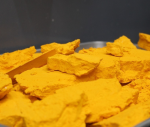You are here
French baguettes rise to the occasion
By AFP - Oct 11,2014 - Last updated at Oct 11,2014

ROUEN, France — The perfect baguette has long been the ultimate test for aspiring bakers the world over.
And now the ability to produce this long, thin loaf is in global demand because the appetite for baked delights from France is surging in regions with burgeoning middle classes — notably Asia and the Middle East.
“The growth is linked to lifestyle changes, and more broadly to the emergence of middle classes,” says Christophe Monnier, an expert at the Ubifrance agency which helps French companies set up overseas.
Forget the timeworn caricature of the Frenchman in black beret and blue overalls with a baguette tucked under his arm: French baked goods are in, and they are taking the world by storm.
The numbers speak for themselves. From 2003 to 2013, French exports of dough and mixes for baked goods more than doubled, from 197 million euros to 480 million euros ($600 million).
Finished baked goods, which end up being sold in French restaurant chains or hotels abroad, have leapt from 850 million euros’ worth to 1.5 billion euros during the same period.
The growth has been spectacular in some markets, with exports to China soaring 7,800 per cent over the past decade.
The bakery sector “is undeniably the spearhead for the [French] food sector” abroad, Monnier said.
Chains have opened locations across the globe to cultivate the craving for French baked goods.
Brioche Doree, which calls itself the world’s leading French-style fast-food chain, now boasts more than 500 restaurants worldwide.
Another, Delifrance, has several hundred locations abroad, including more than 200 across Asia.
But France’s small-scale bakery tradition, which is still vibrant at home, has also ventured abroad.
Take for example baker and food writer Eric Kayser, whose mix of tradition and innovation led him to success in Paris, and who has since opened up in 100 cities abroad as far flung as Taipei and Tangiers.
‘Infatuation’ for French pastries
“The entire world is an exciting market as everyone wants to eat well and the croissant or the baguette are an affordable luxury,” Kayser told AFP.
Upscale pastry shop Pierre Herme has also ventured far from its Paris roots to open boutiques in Japan, Hong Kong, South Korea, Qatar and the United Arab Emirates as well as in neighbouring Britain.
But baguettes cannot conquer the world without trained bakers, and the National Bakery and Pastry Institute (INPB) in Rouen is trying to meet that need.
While a group of students from a number of countries tries to assemble a Saint-Honore — an elaborate concoction involving cream puffs and caramel glaze — the Institute’s director Jean-Francois Astier said there is ample foreign interest in their training programme.
And in addition to the foreign students who make up 15 per cent of the INBP’s professional trainees, “a small majority of the French students... want to go overseas.”
Alexandre Matcheret, 47, is one Frenchman who left to try his luck abroad.
He has just opened two Kayser boutiques in Cambodia, and is excited about the potential.
“Bread is already in their culture, but it is not the same process, it is very industrial,” Matcheret said.
“I sense there will be a strong demand with the development of the middle class,” he said, adding that 95 per cent of his customers are Cambodian.
While the market is promising, setting up shop is not cheap if genuine equipment is imported from France.
Many bakeries also import flour, butter and yeast from France to ensure an authentic taste, although they often still have to adapt the baking process to local conditions.
The secret of perfection
In emerging markets, that can pose difficulties.
Patrick Moreau, 48, moved to Cape Town in 2008 and now has three bakeries and a tea room under his own Cassis Paris brand.
“There is a real infatuation in South Africa for French pastries and rising demand for hand-made bread,” Moreau said.
But “with the slide in the value of the rand it is too expensive to import French flour,” he added.
They have been forced to experiment, and found that by mixing four local flours and adjusting the kneading process, they can produce the same texture.
“You have to adapt to local ingredients to reach the same quality as in Paris,” Moreau said.
And what is the secret of the perfect baguette?
Denis Fatet, who coordinates training at the INBP, defined the ultimate test of the baker’s skills, this way: “The baguette is made with no additives, and it must not be frozen.
“Its crust must be crisp, with a beautiful golden colour. The doughy part, cream-coloured, has irregular holes, and melts in the mouth.”
Related Articles
Paris – French President Emmanuel Macron on Friday joined calls by bakers for France's traditional baguette to be recognised as one of
TUNIS — Tunisia will again supply flour to more than 1,000 non-subsidised bakeries in the North African country after most of them ceased op
JERASH — While most people are happy to buy their bread at any bakery they pass, the customers of 70-year-old baker Munthir Tantawi refuse t


















